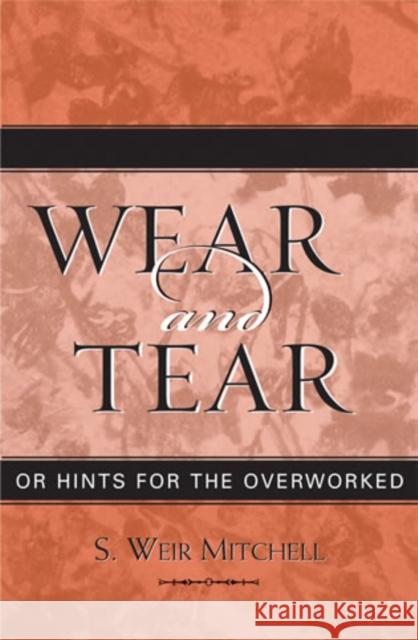Wear and Tear: or Hints for the Overworked » książka
Wear and Tear: or Hints for the Overworked
ISBN-13: 9780759106734 / Angielski / Twarda / 2004 / 100 str.
S. Weir Mitchell's work on the etiology and treatment of neurasthenia, commonly called "brain drain," provided the intersection of medical diagnoses of a serious ailment with cultural critiques of modernity and the vigorous reassertion of traditional gender ideologies. It was for neurasthenia that Mitchell treated feminist Charlotte Perkins Gilman and countless others, for whom the pace and pressures of modern society had proved too difficult to bear, and who were exhibiting symptoms ranging from severe depression and unbearable lassitude, to anxiety and panic disorders. First published in 1871, Wear and Tear became a best-seller, a popular general treatise on culture and mental and physical health and brought Mitchell significant public attention. More than a century later, Wear and Tear may be seen as cautionary tales, reminding contemporary readers of the persistence of traditional gender ideologies, and the ways in which pseudo-scientific arguments have undermined women's claims for an equal footing in the public and private spheres.











